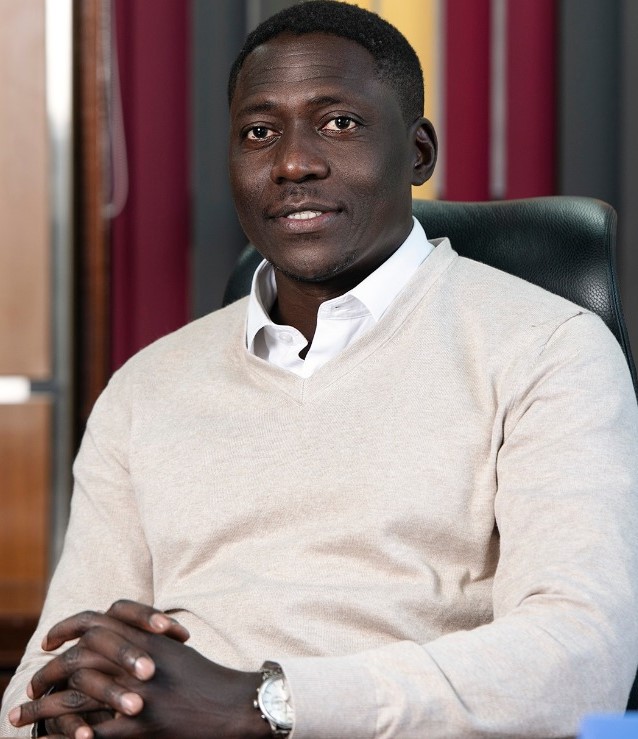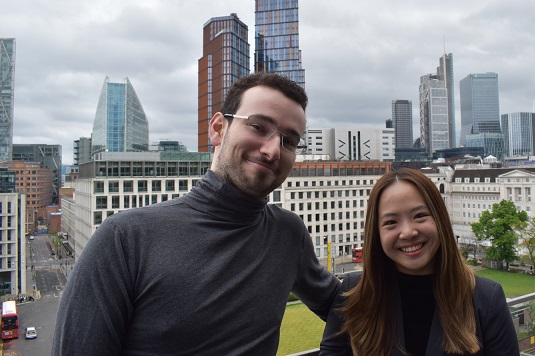There are approximately 1.4 billion people in Africa, with a median age of 20.1. The potential for economic growth on our singular continent is any global economy’s dream. To fully unlock this demographic dividend, we would do well by creating working partnerships that accelerate our investments in the education and health of this population.
As healthcare businesses, we have an invaluable role to play in moving forward the health access agenda.5 Every African deserves quality care. And as a business, we can indeed remain profitable if we find creative ways of sustainably contributing to delivering quality care.
As a leader in diagnostics, Roche has a 10-year strategic plan to deliver twice the number of medical advances at half the cost to society. We believe that access to quality healthcare for all Africans is possible. It will take various stakeholder groups working together in a well-coordinated manner.
Beyond the innovations we create, we must find innovative vehicles to take quality diagnostics and treatments to the people. Partnerships – between healthcare stakeholders, providers, governments, corporates, NGOs etc. – are critical to creating the vehicles we need to conquer Africa’sdual burden of communicable and non-communicable diseases (NCDs). NCDs like hypertension, diabetes and heart diseases are among the contributors to high mortality rates; communicable diseases like HIV/AIDS, malaria, tuberculosis and acute respiratory infections are also significant challenges. We need to unpack what true partnerships are to build them successfully.2
As we identify the collaborators who will join forces with us to ease the African burden, it is important to distinguish where a transactional relationship suffices and where only a strategic relationship can deliver desired goals. The latter requires more investment in time and effort to craft correctly. Successful global health partnerships are, in essence, strategic. For example, Roche recently partnered with the Kilimanjaro Christian Medical Centre (KCMC), Philipps-University Marburg, the Deutsche Investitions-und Entwicklungsgesellschaft (DEG) and the German Federal Ministry for Economic Cooperation and Development to strengthen diagnostics infrastructure and capacity in north-eastern Tanzania. This is a strategic partnership with a long-term vision in mind.
True partners are bonded by transparency, trust and mutual respect. Each partner’s specific objectives are shared transparently. And whereas there may be variations in some goals, the ultimate vision to be delivered is always shared. Finally, it is clear what unique strengths each partner brings to the table. In the end, the whole is larger than the sum of its parts.
There are different kinds of partnerships. When different African countries work together in true collaboration, we can achieve far more than they would individually. For example, the Zazibona collaborative medicines registration partnership is paving the way for cooperation across borders and is fast-tracking access to medicine for people from 16 African countries. This initiative addresses widespread African healthcare challenges, such as delayed product applications, high staff turnover, long registration times, inadequate financial resources and limited capacity to assess certain types of products such as biologicals and biosimilars.3
At Roche, we aim to share innovations that can potentially increase access to diagnostics tenfold in Africa. But we can’t accept that patients won’t experience their benefits. Traditionally, higher-income groups have few problems accessing the diagnostics they need. To reach the poorer majority, we need to think differently. In many African countries, most people cannot simply walk into a private hospital to get a viral test. But we still need to reach them. We need to take a less traditional approach to make this happen. That means collaboration on a broader scale, to find partners who can help us overcome logistical, financial and social barriers.
To increase the number of patients we reach tenfold, we must understand the reality in public facilities throughout the continent and identify opportunities to build access models in partnership with all the stakeholders involved. We must even consider, in some cases, that we could partner with other healthcare providers (within what is allowed by laws and regulations) for the sake of better access for under-served patient populations. There are a few critical questions we are addressing as we reflect on our present and future partnerships in Africa:
- Do our diagnostics solutions optimally meet the unique specifications of the African environment, or is there room for some customisation?
- Do the African trade and regulatory environments allow for rapid and efficient expansion of diagnostics?
- Does the continent have sufficient trained healthcare personnel (lab technicians, pathologists etc.) to process and interpret laboratory results?
Some aspects of these questions fall within our sphere of control. Most are within the control of our potential partners. This final question above is one of the most critical and challenging to address. To illustrate that, consider that Africa has approximately one pathologist per one-million people.4 This is a glaring barrier in our journey to access pathology diagnostics. How do we come together to address it? Well, what if, rather than physically sending patients to pathologists, we brought pathologists to them by leveraging technology?
The ongoing digital transformation in Africa is an opportunity that can be leveraged. We can build a bridge with technology, connecting pathologists throughout Africa (and indeed the rest of the world) with medical facilities across the continent. Today, physical distance and logistical challenges need not be the barriers they once were. Further, if we can make our borders porous to trade and the movement of talent, and if we can overcome regulatory hurdles through harmonisation across borders, this approach to telemedicine can quickly and substantially increase our reach to patients.
Digital healthcare or telemedicine is an invaluable driver in our journey upstream to access. Cross-country and even cross-continental partnerships can fast-track diagnostics and drastically boost access to pathology all over Africa. For many people in Africa, life remains a hit-and-miss – a lottery dependent on where one is born. We can all work together to ensure that proximity – one of the continent’s most significant challenges – is no longer a barrier to access.
If just for a moment, we pull back and look at Africa as a soaring eagle would, rather than getting lost in minutiae, no doubt we all wish to see all 54 countries as one greater community, interconnected and collaborative. The nascent Africa Continental Free Trade Agreement (AfCFTA)6 gives me hope. Let us, each in our respective roles, enable Africa to join up and get stronger. Let us act and work together to improve the eagle’s view.
References:
- https://www.worldometers.info/world-population/africa-population/
- https://www.ncbi.nlm.nih.gov/pmc/articles/PMC7122505/
- https://link.springer.com/article/10.1007/s43441-020-00154-y#:~:text=History%20of%20ZaZiBoNa,%2C%20and%20Zimbabwe%20%5B11%5D
- https://www.ncbi.nlm.nih.gov/pmc/articles/PMC7276345/
- https://www.un.org/en/chronicle/article/advancing-global-health-agenda
- https://au-afcfta.org/









